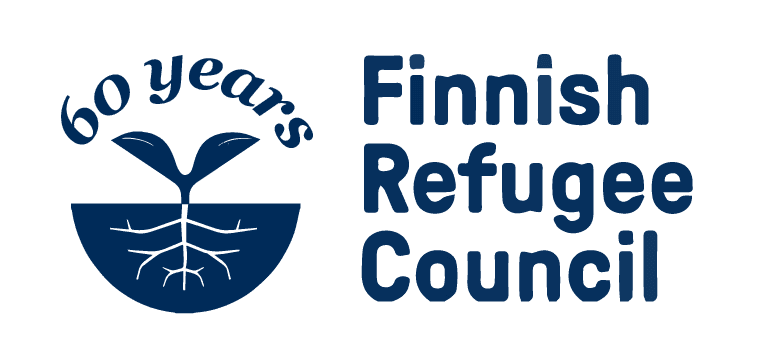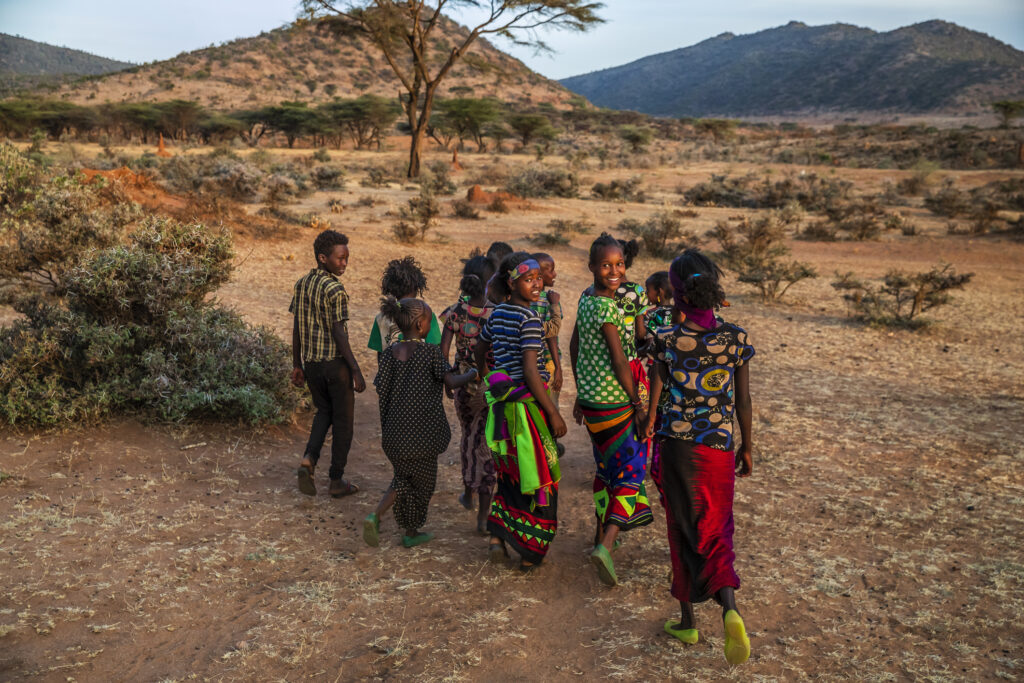The Finnish Refugee Council has been working in Ethiopia since 2019, after which work had been done in several projects. Almost all the refugees in Ethiopia live in refugee camps, which is where our work is mainly focused. Our work aims to strengthen the resilience of refugees and host communities and to enable a brighter future for them in a new living environment. We respond to the needs of refugees on a large scale by providing adult education as well as humanitarian assistance. FRC’s adult education in Ethiopia consists of language training, Functional Adult Literacy and English for Adults as well as of vocational, financial, and business skills training. Our humanitarian assistance work aims at addressing the humanitarian needs of the population displaced by the ongoing conflict in Northern Ethiopia. We meet urgent basic needs of the IDPs, returnees and vulnerable hosts for example through multipurpose cash for food and shelter, protection against Gender Based Violence (GBV) and Functional Adult Literacy.
All, Letters from the field
FRC’s work in Ethiopia aims to empower refugees and the host community through sustainable development
Ethiopia, located in the Horn of Africa, is the third most refugee-receiving country on the continent. Nearly one million displaced people currently live in the country, mainly from Sudan, South Sudan, Somalia, and Eritrea. With the country’s political instability, internal conflicts and climatic conditions, there is also a large number of internally displaced people in Ethiopia. The situation of both the host community and the refugees is challenging, despite which the refugees have been welcomed into Ethiopia.
”The situation of refugees in Ethiopia is currently very difficult. Refugees are receiving assistance to some extent, but the high demand is not met. There are livelihood challenges and refugees are forced to sell their food and other supplies just to survive. The situation is very difficult, and the cost of living is high,” says Alemneh Tsegaw, FRC’s Field Office Manager in Gambela.
Functional Adult Literacy training aims to build a basic understanding of literacy and mathematics through practice. Many of the participants are illiterate women who have not had access to education before. Literacy plays an important role in empowering refugee women and in enabling them to have a new beginning.
”Literacy enables refugee women to take on leadership roles in their communities. I recall the words of a woman in the Gambela refugee camp who was initially illiterate. After attending FRC’s courses, she became a leader of a church group because she could read the Bible to others. By becoming literate, she was able to get her voice heard in the community and take on a leadership role,” recalls George Were, FRC’s country director in Ethiopia.
Livelihood-oriented vocational training and financial and business training are also a key part of adult education. High unemployment rate and the lack of livelihood opportunities in refugee settlements underline the importance of livelihood support. FRC’s courses provide refugees and participants from host communities the opportunity to learn skills such as IT and agriculture. These skills have helped refugees in Ethiopia to find employment and set up small businesses.
”The most rewarding part of my work is enabling refugees to access vocational training and thus more diversified livelihood opportunities. Investing in education is long-term help – it gives refugees a chance to survive in the future, wherever they end up in. It is also a pleasure to see the interest and enthusiasm of refugees to participate in the courses,” says Shambel Mohammed, FRC’s livelihood specialist in Addis Ababa.
One of the key principles of our work in Ethiopia is the promotion of gender equality. Through an inclusive approach, we reach groups that are particularly vulnerable. For example, women face gender-based violence, discrimination, livelihood difficulties and other challenges. By promoting women’s literacy and education, we improve equality in refugee communities.
”Embracing inclusion is an important and key priority of FRC’s project implementations. Thus, our educational program emphasizes gender equality, age, and disability inclusion”, Shambel emphasizes.
At least 50% of the participants in our courses are women, 40% are young people and 5% are people with disabilities. As much as 93% of participants in the Functional Adult Literacy training are women. Genuine opportunity to participate for marginalised groups is ensured by making arrangements, such as accessible facilities and childcare, according to the needs of the participants.
Inclusiveness does not only mean considering the needs of marginalised groups in our activities, but at FRC we understand it more broadly as the inclusion of the host community in our activities. We see peaceful coexistence and social cohesion with the host community as part of sustainable development.
”20% of participants are from the host community and 80% are refugees. By involving also the host community, we harmonise the coexistence of refugees and host communities,” Alemneh explains.
Taking climate change into account in all our activities is also crucial. Drought and the resulting conflicts are causing massive, forced displacement in the Horn of Africa. One of the ways we combat climate change is by using local products and teaching refugees environmentally friendly agriculture. In general, teaching refugees skills rather than giving them cash aid, for example, is at the heart of what we do – giving them the tools to make a positive difference to their future.
”For me, sustainable development means putting people at the centre of everything we do. We need to communicate with refugees: their voices, their views and their feedback are essential. Another part of sustainability is working in such a way that we plant a seed that grows into something bigger. I would also like to see more long-term funding in the future. Short-term funding will secure essential needs and help us get through the crisis, whereas long-term funding will allow real recovery and sustainable development,” George concludes.


